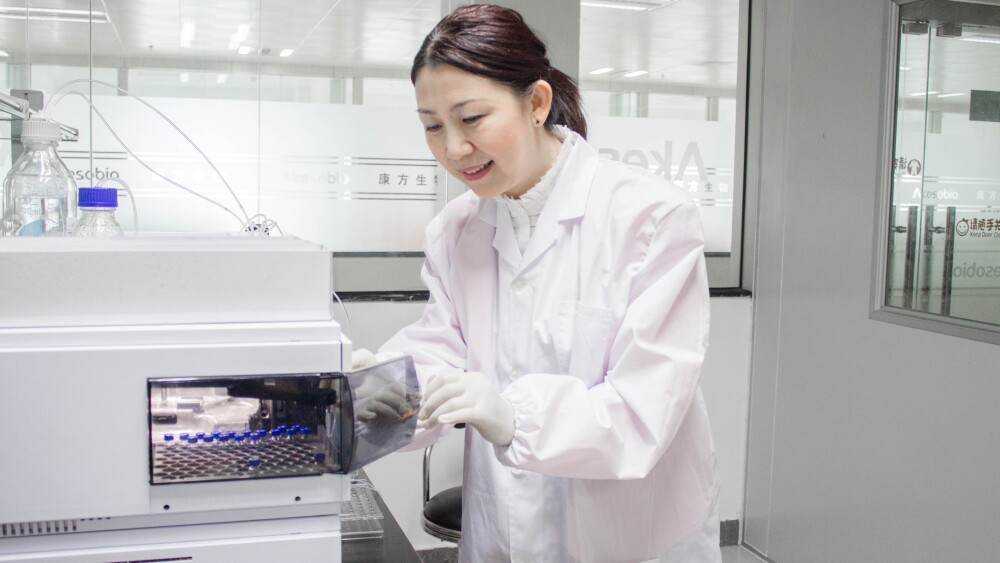Kimchi, one of Korea’s major fermented foods, is helpful in preventing allergic diseases (eg, atopic dermatitis, asthma, and rhinitis), obesity, and anemia, according to a new paper.
-Kimchi's health benefits grow when it is fermented and consumed more.
-Kimchi is useful in preventing cancers, dyslipidemia, high blood pressure, and anemia.
-These findings are based on 149 papers regarding kimchi's health benefits and published over 1995-2015 at home or abroad.
SEOUL, South Korea, May 2, 2018 /PRNewswire/ -- Kimchi, one of Korea's major fermented foods, is helpful in preventing allergic diseases (eg, atopic dermatitis, asthma, and rhinitis), obesity, and anemia, according to a new paper. Conventional wisdom has it that kimchi tastes best when it is fermented. Now, the paper confirms that kimchi's health benefits are maximized when it is fermented. In order to spread Korean food to the world, Korea Food Communication Forum (KOFRUM) introduces the kimchi mentioned above. KOFRUM, which advertises a variety of Korean foods around the world, intends to announce the excellence of kimchi in earnest.
A team of researchers headed by Professor Cha, Youn-soo at the Department of Food Science and Nutrition at Chonbuk National University came to the conclusion after analyzing 590 kimchi-related papers released at home or abroad over 1995 and 2015 (ie, 385 Korean papers and 205 English ones). Professor Cha and his team's findings (ie, A Survey of Research Papers on the Health Benefits of Kimchi and Kimchi Lactic Acid Bacteria) were introduced in the latest issue of the Journal of Nutrition and Health published by the Korean Nutrition Society.
Professor Cha and his team found that among the total 590 papers, about 149 dealt with kimchi's health benefits, of which 17 targeted human beings.
In most of the 149 papers, kimchi and kimchi lactic acid bacteria were found to prevent oxidative stress, cancers, dyslipidemia, and high blood pressure, and to ease infections.
In the 17 papers (which studied kimchi's health benefits for human beings), it was revealed that the more one eats kimchi and the more fermented kimchi is, the more health benefits it offers. For instance, one paper, which targeted women in their 20s and 30s and involved consumption of either 150g or 15g of kimchi a day for seven days, found that women who ate 150g of kimchi every day had better internal conditions than those who ate 15g of kimchi a day (eg, in terms of curbing harmful bacteria growth and promoting useful bacteria growth). Another paper, which targeted male adults and involved consumption of 300g of kimchi a day for four weeks, found that compared to a control group, they had high levels of iron and ferritin in blood - an indication that kimchi can be helpful in preventing anemia, a disease mainly caused by lack of iron.
A third paper, which targeted adults with pre-diabetes and involved alternate consumption of 100g of fermented kimchi (one day) and 100g of non-fermented kimchi (the following day), found that compared to a control group, they saw declines in weight, body mass index (BMI), and waste size. Fermented kimchi was found especially useful in easing high blood pressure and hyperinsulinosis problems.
Professor Cha and his team also found that among the 17 papers, some dealt with the linkage between kimchi and prevalence rates. Two papers were based on the Ministry of Health and Welfare's Korean National Health and Nutrition Examination Survey (KNHANES) conducted 2007~2012. The first one concluded that kimchi consumption has nothing to do with adults' (both male and female) high blood pressure prevalence rate, while the second one found that compared to the people who consumed less than 40g of kimchi a day, those who consumed more than the amount had a lower asthma prevalence rate. Other papers, which also dealt with the linkage between kimchi and prevalence rates, found that: 1) adults eating 85~158g of kimchi a day had a 0.68x less risk of suffering atopic dermatitis than those eating 0~36g of kimchi a day; and 2) those eating 108~180g of kimchi a day had a 0.81x less risk of suffering rhinitis.
Meanwhile, Dr. Choi, Hak-jong at the World Institute of Kimchi reported in 2017 that kimchi lactic acid bacteria (ie, Weissella cibaria WIKIM28) are excellent in improving or preventing atopic dermatitis. He injected the bacteria into an experimental mouse with atopic dermatitis problem, analyzed changes in the mouse's immunity substances, and found that IgE generation declined by 50% and atopic dermatitis symptoms eased by 40%.
Dr. Choi, Hak-jong and his research team also found in 2017 a kimchi's mechanism for improving atopic dermatitis for the first time in the world - ie, kimchi lactic acid bacteria facilitates division of tolerogenic dendritic cells and activates regulatory T cells, eventually improving or preventing atopic dermatitis. This finding was revealed at Scientific Reports, Nature publishing journal, in 2017.
Dr. Choi, Hak-jong said, "more kimchi consumption results in stronger prevention of allergic diseases, such as asthma, atopic dermatitis, and rhinitis".
Kimchi is Korea's traditional fermented vegetable dish. There are a variety of pickled vegetable dishes worldwide. But kimchi is unique as it undergoes fermentation after being salted.
Head of the World Institute of Kimchi Ha, Jae-ho said, "the three key health-boosting components for kimchi are: 1) whole cabbage leaves (its major ingredient); 2) seasoning made of chili pepper and other ingredients (its secondary ingredients); and 3) those derived from fermentation of lactic acid bacteria". He also added, "kimchi's nutritional strength is that it is rich with vitamin (eg, vitamin B1, B2, and C), minerals (eg, calcium and kalium), dietary fiber, and lactic acid bacteria".
Korean people consume an average of 62.4g of kimchi every day (based on 2016 data). To prove kimchi's health benefits in a more scientific way and let the world know its benefits, the Korean government set up the World Institute of Kimchi (the world's only kimchi-dedicated research center) in Jan 2010.
CONTACT: Dongryeong Han, +82-2-6300-2852, drhan@kofrum.com
View original content:http://www.prnewswire.com/news-releases/kimchi-found-useful-in-preventing-allergic-diseases-such-as-atopic-dermatitis-asthma-and-rhinitis-is-a-key-staple-in-korean-cuisine-300641052.html
SOURCE KOFRUM




